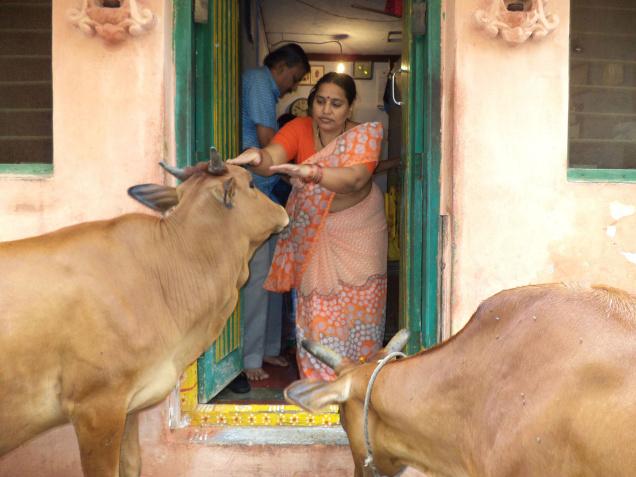On Rajaputra Street in Chittoor the bovines’ affinity with women and children is such that they tap on the doors and make gentle ‘baa’ sounds to wake up people at dawn
People worship cows on Gokulashtami Day in a year. But for the households of Rajaputra Street in Chittoor, not a single day in a week round the year will pass without offering prayers to the sacred animals.
A score of cows with their calves can be seen in this street, with history dating back to more than a century, every morning and evening. Their affinity with women and children is such that the cows tap the doors and make gentle ‘baa’ sounds to wake up their patrons at dawn.
It is a regular phenomenon that cows find their way into the households, entering kitchens and feasting on the vegetables and food. Angry housewives soon cool down, considering such intrusion as a good omen. “Each time a cow enters our house, our financial crunch would be eased to a great extent. We feel healthy and happy for several months,” Suguna, a housewife says.
The cows not only get rice water, food and vegetables, they also get biscuits, bread, and many bakery items, specially brought for them. Some children play with the cows, which reciprocate their gestures of nodding heads, blinking eyes and lifting limbs and repeating the moos of kids.
Anitha Singh, a housewife of the sixth generation of a Rajput family, says that her nine-year-old son would not go to school without wishing his favourite cow since three years. “I have been feeding cows since three decades, right from my childhood,” she said.
On the flip side, patronage to cows since generations has led to the waning number of street dogs here. Women from other localities too come to Rajaputra Street on festive occasions in search of cows, to feed them. The older generation take pride in carrying forward this unique tradition, which does not exist anywhere in the town.






